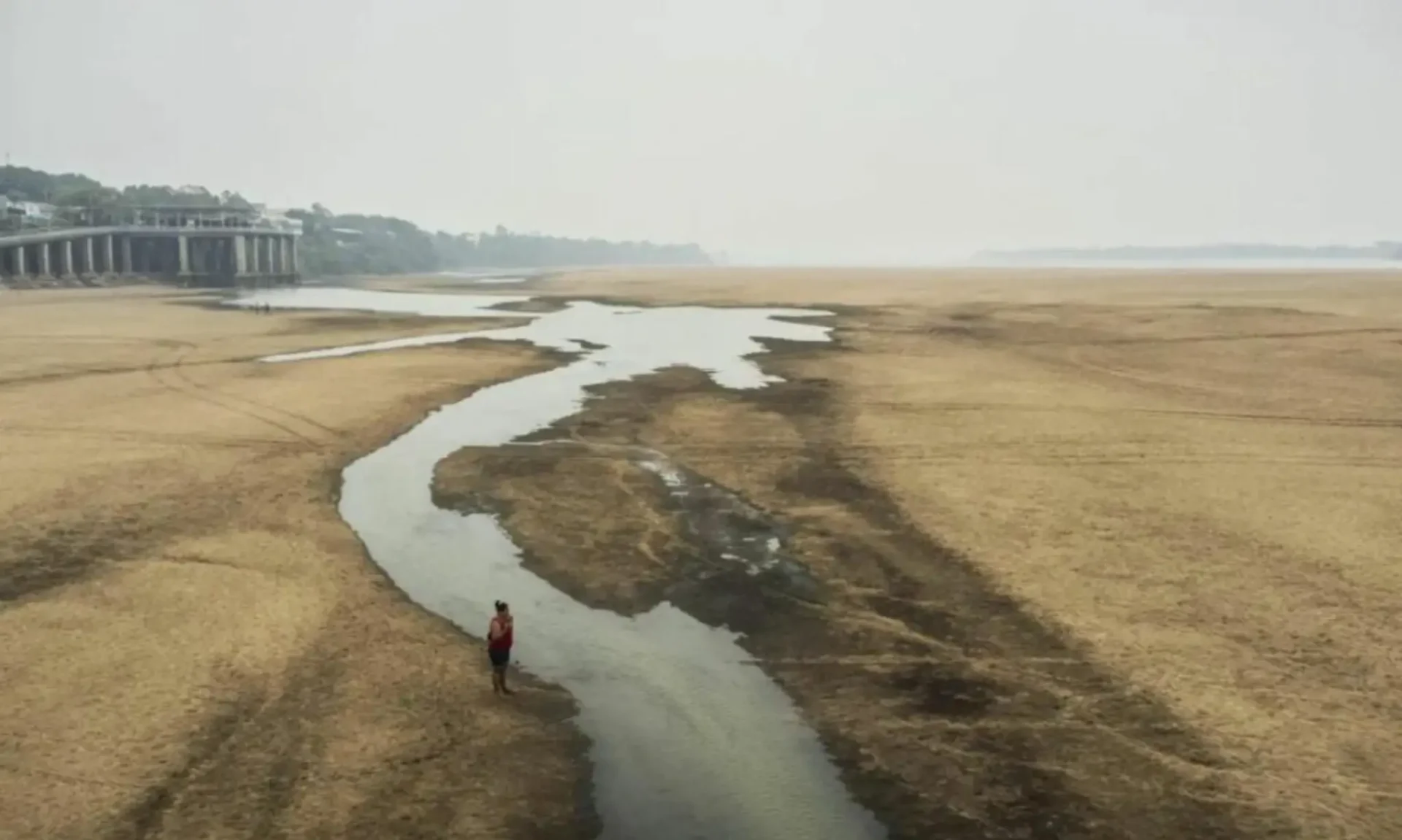Brazil is facing an alarming increase in extreme weather events, which are becoming more intense, frequent and destructive. In 2024, the country was the scene of major weather disasters. In Rio Grande do Sul, floods between April and May affected more than 875,000 people, causing numerous deaths and local economic losses. In São Paulo, millions of people were left without electricity after heavy rains. In Rio de Janeiro, 100,000 people were affected by floods in January. In the second half of the year, record drought in the Amazon and forest fires in the Center-West, North and Southeast covered 60% of the national territory with smoke in September, aggravating environmental and public health problems.
This series of events is not isolated: in 2023, torrential rains had already been recorded in São Paulo and Rio Grande do Sul, as well as historic heat waves. What once could be interpreted as an exception, now appears as a rule.
This reality was documented in research conducted by the Interdisciplinary Climate Change Observatory (OIMC) of UERJ and the Political and Electoral Observatory (OPEL), linked to UFRJ and UFRRJ, during the first semester of 2024. Using focus group methodology, the research, funded by the Climate and Society Institute, analyzed the population’s perceptions of the climate crisis in six Brazilian cities: Rio de Janeiro, Duque de Caxias, Niterói (in the state of Rio de Janeiro), São Paulo, Diadema and Osasco (in São Paulo). The results of the study are revealing.
First, participants demonstrated a broad understanding of the severity and human origin of climate change. However, feelings range from pessimism and helplessness, on the one hand, to a willingness to act individually, on the other. Actions mentioned include saving water and recycling, but confidence in collective solutions or public policies is weakened by a sense of disillusionment with government.
Second, the research reveals widespread recognition of the seriousness of climate change and shared perceptions that the poorest people are the most vulnerable to impacts such as floods, prolonged and more frequent waves of extreme heat, droughts, and forest fires. This conclusion is derived directly from the concrete life experiences of the people interviewed, who relate how climate disasters already affect their routines.
However, the political and social response to this climate emergency has been marked by contradictions. Brazil still faces the legacy of the environmental dismantling promoted by Jair Bolsonaro’s government, which weakened institutions and weakened environmental policies. For its part, the third Lula government is trying to rebuild this institutional terrain, adopting measures such as the creation of the Ministry of Environment and Climate Change, the founding of the Ministry of Indigenous Peoples and the confirmation of Brazil as the host of COP 30, in Belém, in 2025. Although these efforts represent progress, they coexist with internal tensions within the government coalition and pressure from economic sectors linked to agribusiness and the fossil fuel economy. An emblematic example of this pressure is the proposal for oil exploration in the Amazon Equatorial Margin.
This leads us to a third result of this research, which points to the limitations of the State in generating effective responses. Many people expressed frustration at the lack of concrete actions by governments, especially regarding disaster prevention and climate adaptation. This frustration adds to a sense of abandonment, particularly in urban peripheries, where precarious structural conditions amplify the impacts of extreme weather events. Pessimism regarding the capacity of public power to promote real changes is, to a certain extent, a reflection of these processes of vulnerabilization of individuals, classes and social groups.
The current predominance of pessimism and impotence hinders the construction of a more active and committed political action, requiring joint efforts by governments and civil society to create strategies that strengthen the sense of belonging and the capacity for collective action. It is essential that climate policies be more accessible and connected to local realities, recognizing the particularities of urban peripheries and young populations, who face specific challenges in the fight against climate impacts.
A fourth result of the research has to do with the generalized trust in science as a central axis for the production of evidence and the generation of inputs for the formulation of public policies. Despite the official denialism practiced during the Bolsonaro administration on environmental, climate, vaccines and health issues in general, the people interviewed show high levels of support for scientific development to address the climate emergency.
Fifth, among the public policies highlighted in the research, education is considered an essential policy field to imagine socially, environmentally and economically sustainable alternatives in Brazil. At the same time, there is growing skepticism about the ability of government and business to engage in just energy transition processes.
This contribution of the Climate Change Observatory the Political and Electoral Observatory confirms that, in the perception of many Brazilians, the climate emergency is no longer a problem of a distant future but has become a present reality that redefines the living conditions of millions of people. The Brazilian challenge, therefore, is immense. The transition to a new development model, encompassing production, circulation and consumption, cannot be limited to symbolic speeches or measures, nor can it be inspired by past experiences of a predatory developmentalism that reproduces injustices.
The consequences of the climate emergency demand innovative, audacious, concrete and just actions that confront the interests of powerful sectors and build real alternatives to reduce greenhouse gas emissions, preserve biomes, guarantee human rights and protect the most vulnerable populations, mostly composed of black and poor people.
The climate emergency is already a force that is redefining the present and demands immediate responses that are not based on zero-sum games between environmental protection and development. Planning today with an eye to the future is an urgent necessity. In Brazil, this implies not only dealing with the disasters that are accumulating, but also radically transforming the foundations of its political economy, its development model and its environmental, energy and climate policies.
*Machine translation proofread by Janaína da Silva.















